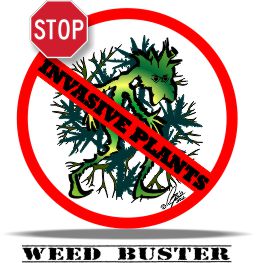Join our community
of garden lovers.
Sign up with your e-mail address to receive our latest offers,
competitions & local gardening tips
competitions & local gardening tips

Often there is a lot of confusion when it comes to invasive plant species and the status thereof. Let me just say upfront that not all exotic plants (plants that comes from other areas of the globe) are invasive or has weed status. Some of these exotic plants grow well under our conditions and adds to the biodiversity in an urban landscape which in itself is already an altered eco system.
Some plants however has naturalized (they propagate and spread naturally without human intervention) and then invade natural eco-systems at the cost of the local fauna and flora. Rivers, wetlands and forests are particularly vulnerable. Not all invasive plants are categorized the same. In fact the South African biodiversity Institute specifies three invasive status categories:
In some cases plants my have a different status in different regions. The reason for that is that certain species might naturalise under certain conditions in the environment but it would be impossible for them to spread naturally under different conditions. Many tropical species may be treated in this way. They would grow well in the sub tropical regions like KZN but are unable to spread in frost areas like Gauteng.
Invasive Alien Plants are widely considered as a major threat to biodiversity, human livelihoods and economic development. You can make a difference by planting alternatives to these invaders, report sightings of these plants in your area and by becoming informed about these plants.
Many Invasive Alien Plants are products of unwise and unintentional plant introductions, but if new invasions are discovered before they are well established, eradication is possible and management costs can be reduced.
Visit the SANBI website for more information on specific species:
Join us this Friday 30 September 2022 for our FREE online workshop on: ‘Alien Invasion – Invasive plants, their impact and alternatives’, with Garden Guru Sue Both.
Please use the following login details to join us at 11am sharp over Zoom:
Meeting ID: 834 0370 8363
Passcode: 468002
or use the following direct link: https://bit.ly/3f2JkrO
